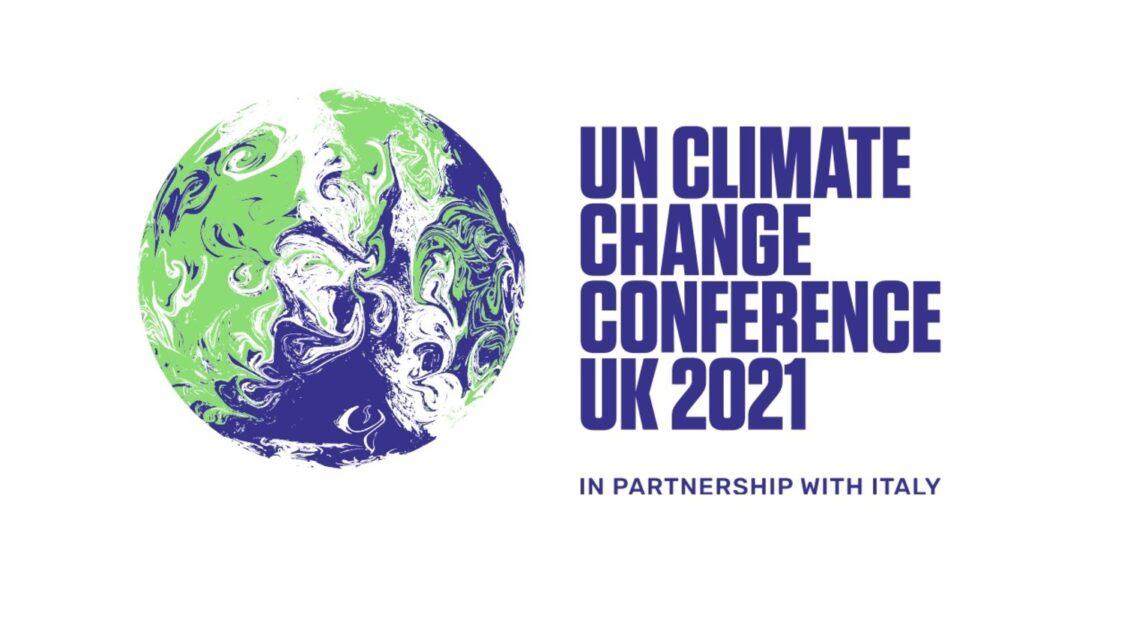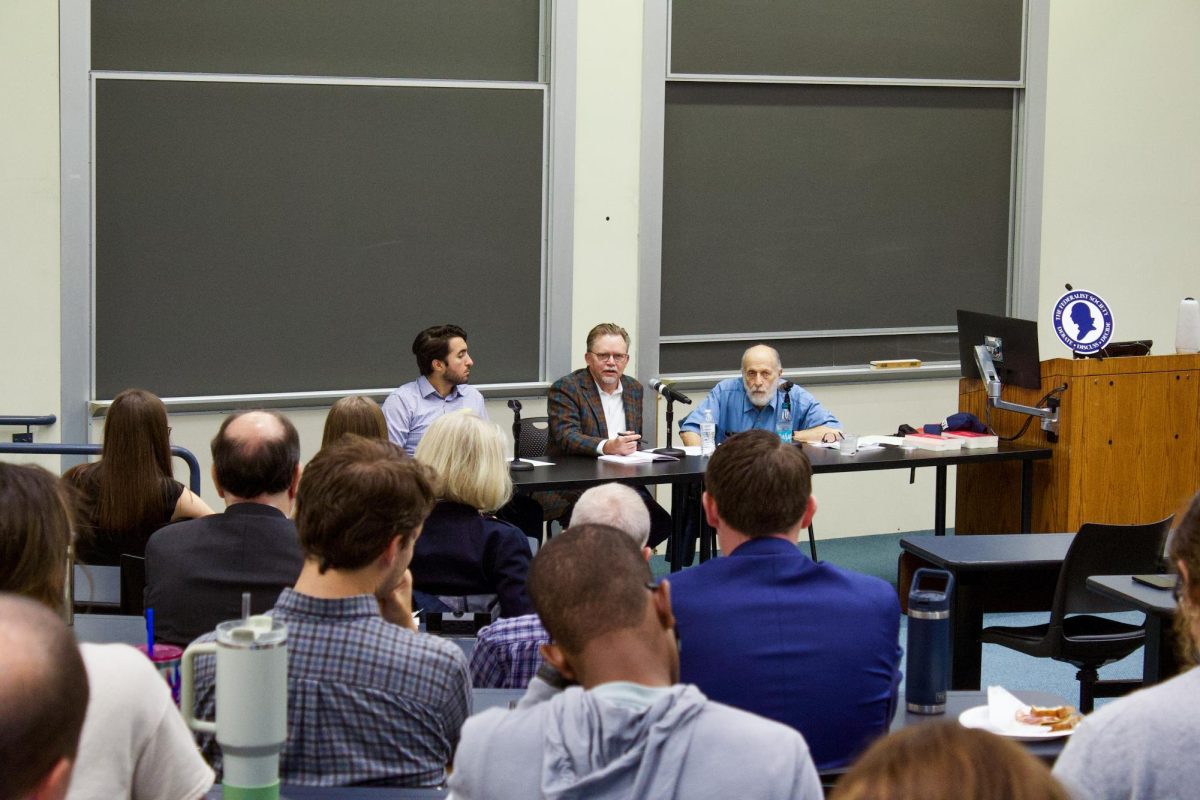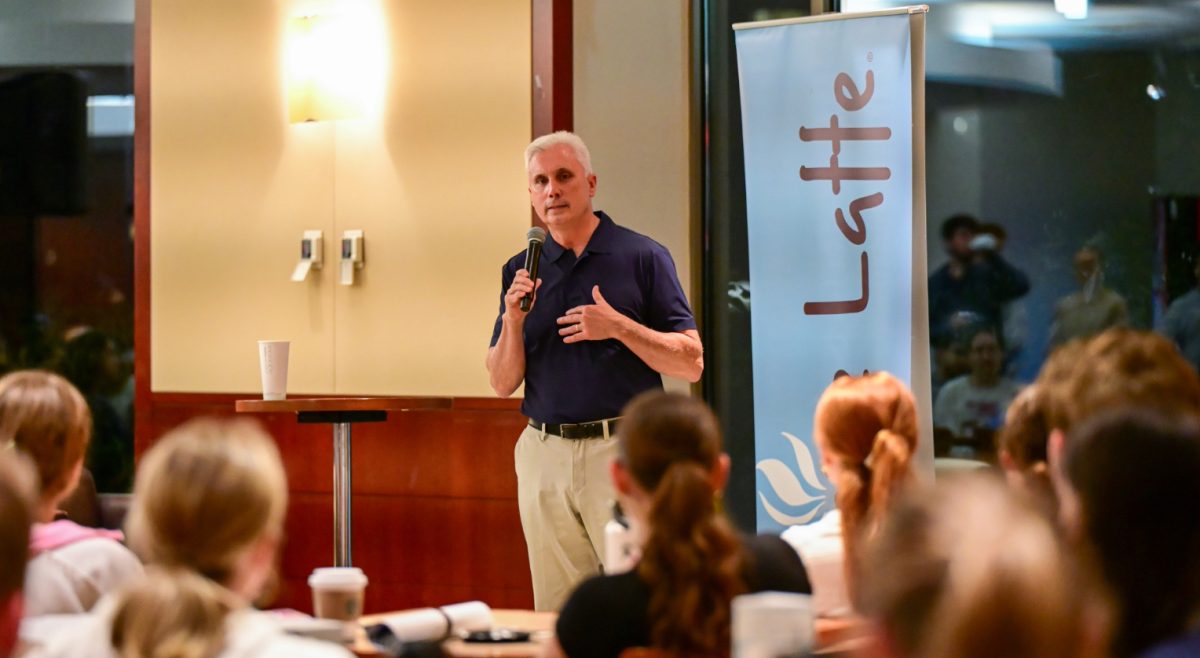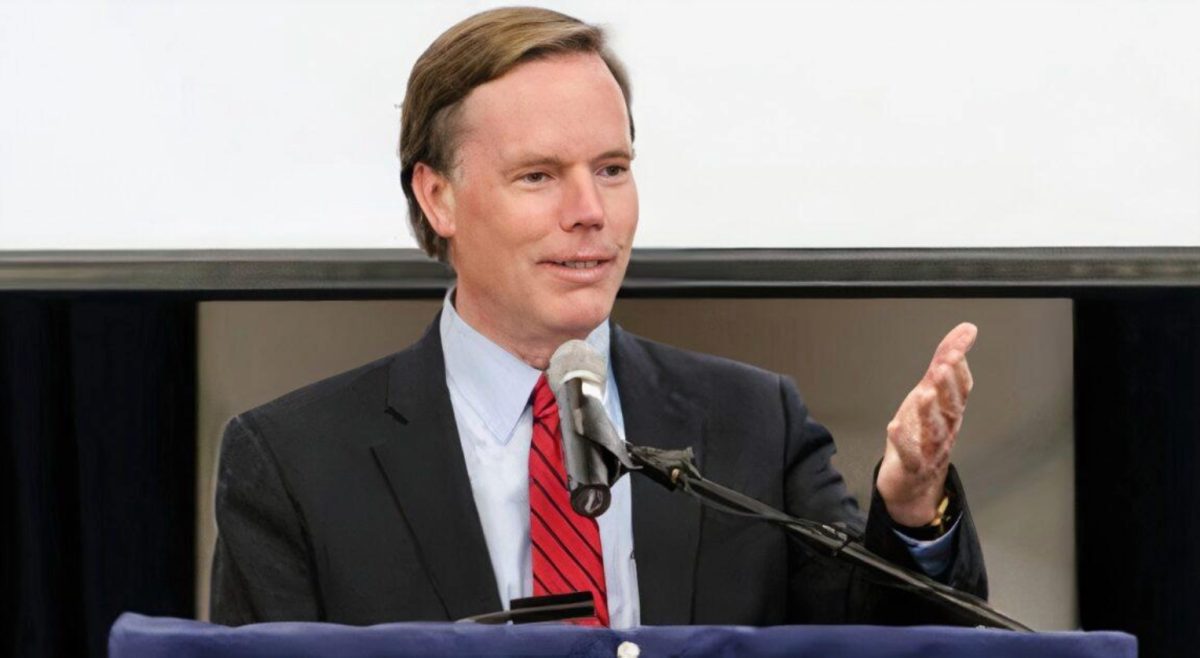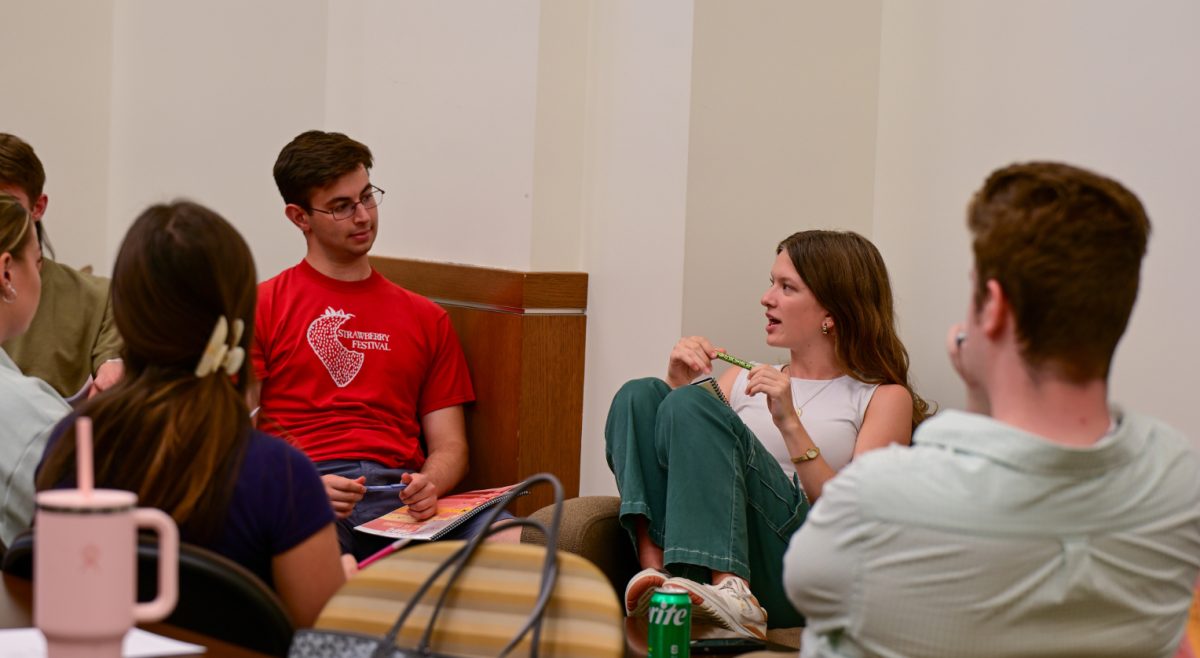COP-26 is an annual United Nations conference on climate change that hosted around 25,000 people and 120 heads of state this year.
BC’s team, which was given observer status alongside other top research universities, attended negotiations, panels, and presentations focused on climate policy that took place from Oct. 31 to Nov. 12.
Philip Landrigan, director of BC’s global public health program and Global Pollution Observatory, helped organize BC’s delegation. Not only was BC’s invitation important as a recognition of its status as a research university, but the conference was also a transformative experience for the faculty and students that attended, he said.
“It was an extraordinary educational experience, both for the faculty and the Boston College students who were over there, just being in that space breathing the same air as people who are making these decisions is huge,” he said.
Julia Horchos, MCAS ’23, is one of the students who attended the conference. She said that when BC found out just a month before the conference that it would be able to attend, it was a scramble to coordinate all of the plans.
“There were like 30,000 people rushing to Glasgow, which isn’t a super big town, to get housing for two weeks, so me and another student ended up staying in Edinburgh and we took the train in every day,” she said.
The BC delegation split up into two nine-person teams, one going the first week and one the second. David Deese, a political science professor who led the second week’s delegation, said their first day at the conference was overwhelming—tens of thousands of demonstrators were on the streets of Glasgow to call for leaders to make effective climate policy decisions.
“The first day was truly an emotional rollercoaster,” Deese said. “Once we arrived in Glasgow, there were good-spirited demonstrators everywhere. They were very peaceful, but it was a little bit overwhelming. And it made me feel like, ‘Where do I belong here? Should I be with the protestors or should I be in the conference?’”
The first two days Horchos was at the conference was the World Leaders Summit, where leaders such as President Joe Biden and Prince Charles spoke. Horchos said it was frustrating that those with observer status—which is what university delegations are given—did not have clearance to attend those meetings.
“It was marketed like it was supposed to be this inclusive opportunity, and when it comes down to it, a lot of people who need to have their voices heard—mostly young people—aren’t able to get into those meetings, which is kind of frustrating,” she said.
Deese said entering the conference was overwhelming because of how many different events there were to choose from. Different countries and NGOs had their own pavilions where they would hold meetings and give presentations on various topics.
“Once we got in, it was totally sensory overload,” Deese said. “There were pavilions galore from many different countries [and] many different non-profits. … There were dozens and dozens of presentations and panels and briefings throughout each day.”
Cynthia Ma, MCAS ’22, said she applied to attend the conference because as an environmental studies major, her interest lies in the intersection of the environment and health, and she thought it would be a great opportunity to see how policy development in this sector happens at a global stage.
“Since there are so many things happening, I chose to focus on environmental health because it’s the most appealing to me,” Ma said. “So, I went and spent a lot of time at the World Health Organization pavilion and the [Sustainable Development Goal 7] pavilion.”
Ma said the pavilion was the most fascinating for her because it focused on the health, energy, and gender nexus. The presentations discussed household air pollution in developing countries, which happens to be Ma’s thesis topic.
Landrigan also pursued his passions through the conference, appearing virtually on a conference panel about ocean degradation.
“I would describe it as a thrilling experience to be on a world stage and have the chance to talk about something about which I’m very passionate and to present it to this audience of very distinguished, influential people,” Landrigan said. “And the hope is that by putting this information in front of the world’s policymakers … it’s the best way to bring about change.”
Though Horchos realized the outcome of the conference would not be an instant solution to the climate change crisis, she said she believes some progress has been made.
“The way I see it, Glasgow was not going to be the end of climate change and solve all of the problems because there have been four years of inaction leading up to Glasgow … but I do think a lot of progress was made,” she said. “Some would argue not enough progress was made, but I do think if we keep ramping everything up this year, things can change.”
Landrigan echoed Horchos sentiment, saying there were some important steps forward but not as many as there could have been.
“There was progress made, but not as much as a lot of us would have liked,” he said.
Despite the immediate outcome, Ma said she thinks the existence of the conference itself is critical.
“It’s very important to have all the countries meet up together and have a platform to collaborate because climate change and environmental health is a global issue,” she said. “It’s transboundary. The atmosphere doesn’t really care about your national borders.”
Deese said he and his colleagues look forward to presenting what they learned to a broader BC audience.
“Faculty will bring back a much deeper understanding of what the whole process is like, and that will filter into their courses, their work with students, supervising papers and theses, and I kind of hope it will lead to some new courses actually being offered,” he said.
Deese said the leaders of the BC delegation already have a date set in January to begin planning BC’s presence at the next COP conference.
“We’ll begin to get together and plan much more what it is that we’d like to stand for, what kind of research we would report, and kind of how to organize that,” Deese said.
Horchos said she was extremely grateful she was able to attend BC’s first COP conference.
“It was cool to be a part of BC’s first voyage into this whole event,” she said. “And I know that BC has accreditation for the event for future conferences, and that’s really exciting because we can build on our networks.”
Featured Image Courtesy of Wikimedia Commons

